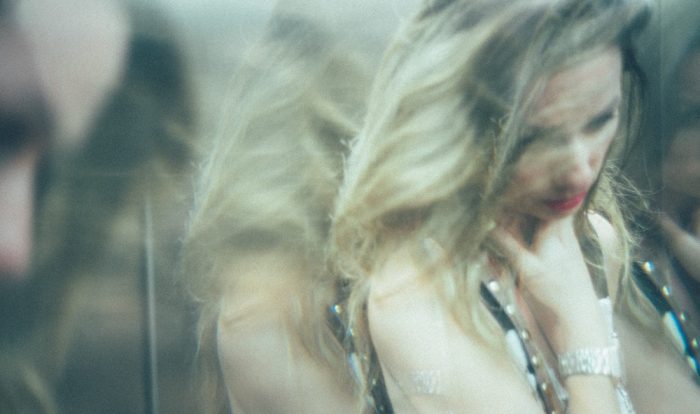Abuse is such a loaded word.
It’s extreme. It’s heavy.
And, as we all know, abusers are evil bottom-feeders with hearts full of sticky, black tar.
They’re inhuman. They’re irredeemable sinners, sociopaths, and psychopaths. They feel no pain, and they have no conscience or remorse. They are loathsome and disgusting people. Abuse is reserved for the worst of the worst.
But what if abuse is not that simple?
I’m a firm believer that all people are good at heart, that our true nature is altruistic. But life has a way of happening, and the most neglected and abused among us usually struggle to break free of the cycle of abuse and trauma. We’ve seen it time and again on the news.
So, how about the rest of us who don’t live in the extreme? When abuse doesn’t fit into a traditional model of what we think abuse looks like, we may have all the symptoms and never know what the underlying cause is. It’s impossible to break the cycle at all if we don’t actually know that we were abused.
How Abuse goes Unnoticed
No one wants to think of their parents as being abusers. No one wants to think of themselves as being a victim. I think we all have an idea of what an abuser looks like in our minds, but all you have to do to see what an abuser looks like is to look in the mirror.
Does that surprise you?
You and I are the faces of abuse. Abuse is being unloving. It’s being unconscious. It’s wounding others from our own place of unhealed wounds.
We are all capable of it. Abuse and trauma are generational. It’s passed down through learned behavior and beliefs. And while abuse is subjective and varied, some forms being far more harmful than others, it impacts us all deeply. In our lives, we have all abused or been abused to some extent, whether it was intentional or not.
We are designed to idolize our parents—this keeps us safe as children. How so? It keeps us obedient and focused on those we depend on. In other words, it makes the fact that everything is vastly out of our control slightly more bearable. A child who rages against the status quo in their home is less likely to remain safe inside the home or survive if they leave it.
We easily accept that our parents do their best and that if it’s anyone’s fault that we’re not loved the way we should be, it’s ours. If we were truly enough, they would have loved us. Or so we believe. This becomes the beginning of our perceived power—what we do have control over. As we grow older, we start to have our own ideas about who we should be in the world.
At this point, we believe there are two options: to reject or emulate. If I believe that my mother was irrational, or that my dad was an angry asshole, I can decide to be nothing like them. If I have been abandoned or neglected, I choose to never trust anyone, not even myself. I have formed judgments about the way they behaved and decided that if it’s a good quality, one I should personally embody, I keep it, or if it’s bad one, it’s one that I should avoid being at all costs.
If the behavior caused us deep pain, it’s more likely that we will resolve to never be like dear old mom or dad. The parts we rejected in them become the rejected parts of ourselves—our shadow selves.
Unfortunately, children are like sponges, soaking up every detail of their caregiver’s behaviors—the good, the bad, and the ugly.
We’ve seen them model various aspects of how to interact with the world. We have seen how they treat themselves. We have seen how they treat members of the opposite sex. We’ve seen how our parents interact with each other as well as how they treat us and our siblings (if we have them) differently. We learn how they treat animals, how they interact with material belongings and the physical world at large.
Our caregivers are our greatest resource for how to be (or not to be). Next, we learn from other authority figures and adults in our lives. It becomes natural to defend and protect our parents or other adults we’ve formed a bond with. If we keep the childlike paradigm, the world makes sense, and mom, dad, and the other adults stay on the pedestal we’ve placed them on, and we stay safe, so to speak.
For many of us, the illusion of perfect adults fades quickly with adolescence, part of the cycle that begins to dissolve the ties that bind. By this time, the history of our upbringing is now almost fully written in the unconscious, as are the beliefs we adopted to do whatever it took to get love.
If we were abused, it became familiar. We may think everyone behaves like this. Perhaps the kinds of abuse we encountered were cultural norms.
Many people don’t even know they were abused. Through suppression, we can consciously decide to forget. Through repression, our unconscious can decide for us that what we witnessed is too much for us to truly know and survive, so it’s buried. Through denial and minimization, we can downplay the severity of what happened. We can even remember something as funny or trivial, when it was anything but.
These are all normal coping strategies. We may even start reenacting these dispossessed, “ugly” characteristics of our parents—after all, we said we’d never be like them, and yet…we can’t help ourselves. We’ve lost control.
It can be difficult to face the truth when looking to the people we love for answers. Just because a person is an abuser does not mean they are a horrible person. This may be a hard concept to consider if you’ve been the victim of extreme abuse.
Hate is an aspect of a person’s blindness, just as love is an aspect of one’s ability to really see. An abuser is simply a wounded person who has become an offender because they didn’t heal their wounds. More often than not, the abuse is not intentional. It is part of a cycle that gets reenacted beyond one’s will. It can happen unconsciously, and it can become compulsive.
What is Abuse, Really?
Abuse is the denial of truth. The truth is that we are worthy of love and wholly worthwhile. We are perfectly imperfect. When we are abused, someone has treated us in a way that doesn’t align with the truth of who we really are. Or we have done that to ourselves.
Once we are abused, we begin to carry the torch of abuse and treat ourselves the way we were treated as children, or we find new partners to continue the legacy of abuse.
Sometimes we allow the abuse because we don’t see it. Abuse is a lie in action. But when we can’t spot the lie, we think that we are being treated the way we ought to be treated. We think we deserve it.
When someone tells a lie about you, it feels bad. When someone treats you in a way that isn’t in alignment with who you really are, it feels bad. Abuse is about power, control, and self-preservation. When someone is abusing you, they are attempting to control you to keep from feeling their own pain.
Have you ever thought about your own life? A fish may never realize it’s been swimming in water until the day it struggles to breathe on land.
You don’t know you were abused because we are all designed to survive at all costs. We may see our abuser as having done nothing wrong. We are wired to bond, even to trauma, and that can mean protecting our abuser’s image if it means survival. If it means downplaying, ignoring, numbing, denying, lying to ourselves, or forgetting, we do it. The protections that we developed as children that saved us begin to cripple our lives if they go unchecked.
Signs that you may have been abused:
- Overreacting to or being overly sensitive to low-stakes circumstances, as in, your current reality and emotions don’t match intensity levels. You may also under-react to life’s more serious events.
- Experiencing a lot of fear, anxiety, depression, shame, and anger are also signs you may have encountered abuse during childhood.
- Lacking normal boundaries and noticing that you are often verbally attacked, disrespected, or mistreated.
- Engaging in multiple unhealthy distractions, like overindulging in alcohol, drugs, food, sex, fitness, or work—anything to keep you busy and from feeling too much.
- Feeling numb or a sense of apathy. Life is dull. Colors are bland, and there’s no joy.
- Feeling a deep sense of worthlessness, despair, or that you have no real value in life.
- Contemplating suicide or disappearing as a way to end your pain or punish others.
- Feeling trapped in a relationship where you experience a lot of pain, but it feels too hard to leave.
- Being frequently ill, injured, or experiencing a lot of unexplained body pain.
- Noticing a deep sense of shame around the way you treat yourself, others, animals, or belongings.
- Identifying patterns of addiction and abuse in your family tree, maybe you notice your friends do as well.
- Fearing that you are an abuser.
If you are feeling any of these, it is not your fault. What was done to you was never about you. It was about someone’s distorted vision, their inability to really see you for who you are—a perfectly imperfect human fully deserving of unconditional love and acceptance. This is your birthright.
If you have become an offender, it is not your fault, but you have a choice to make. What you decide to do with this knowledge is your responsibility. Will you open to learn how to truly love yourself and others? Or will you avoid change and deny the truth to protect your pain?
It’s up to you to decide.
The cycle of abuse can stop with you. The monsters are never outside of yourself, they are all within you; you will come to know that you unconsciously created them and that you hold the power to consciously let them go.
The sooner we can confront the truth in our life around our wounds, the sooner we can embark on the path to healing.
Remember, you are not alone. There are many of us on this journey to wholeness with you.









Read 4 comments and reply